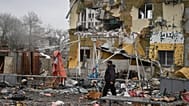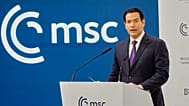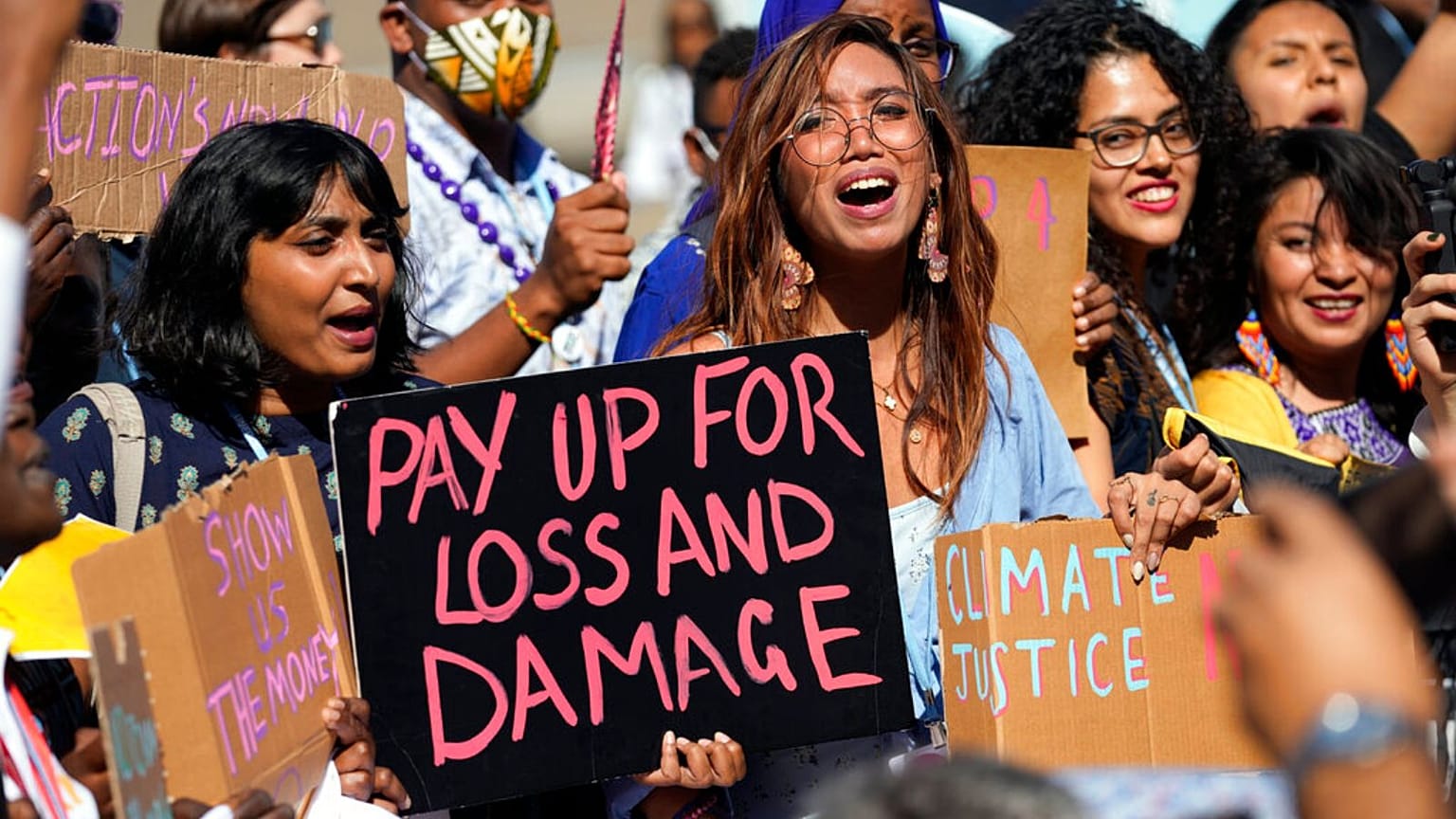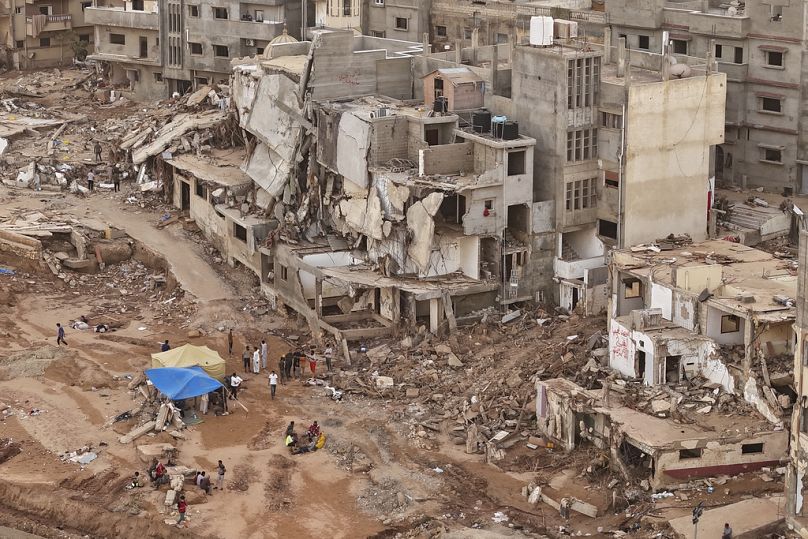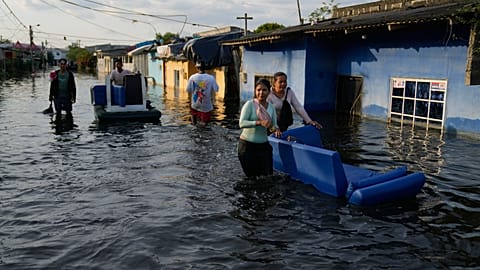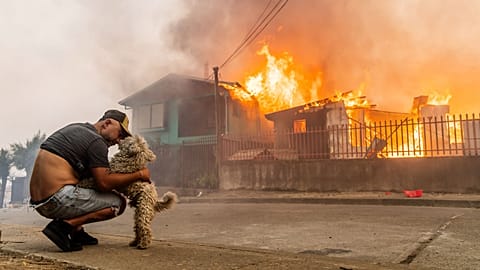The US and other developed nations have been accused of ‘playing hard ball’ with climate victims, as talks ended in failure.
With just over a month to go until the next UN climate summit, countries have so far failed to agree on how to set up a new fund for climate victims.
 ADVERTISEMENT
ADVERTISEMENT
 ADVERTISEMENT
ADVERTISEMENT
The loss and damage fund was a major breakthrough agreement at COP27 last year; a hard-won deal to channel money to those who are suffering the consequences of climate change.
But the devil is in the details, the transitional committee tasked with fleshing out the proposal has found. At their fourth meeting in the Egyptian city of Aswan last week, the committee’s 24 members were unable to reach an agreement.
So another meeting has been scheduled before COP28 begins in Dubai from 30 November until 12 December. "I believe it is possible to resolve all outstanding issues," the UEA’s COP president Sultan Al Jaber told news agency AFP.
“The eyes of the world are on you to come up with clear, clean and solid recommendations before COP28 on how to implement the loss and damage fund and how to top it up,” he warned the transitional committee.
"Billions of people [...] vulnerable to the consequences of climate change depend on the implementation of these recommendations,” added Al Jaber, who is also the CEO of the Abu Dhabi National Oil Company (ADNOC).
The US and the World Bank: What is holding a loss and damage agreement back?
A major source of disagreement in drafting the recommendations for the new fund is where it will be held exactly.
Developing countries and climate justice organisations are pointing the finger at one major player: the US.
They say the US and other richer countries turned up with an inflexible insistence on the fund being hosted by the World Bank - a Washington DC based institution which distributes aid.
“Developing countries did not fight for basic principles of fairness in the UN climate regime to have the United States - the world’s largest historical greenhouse gas emitter - pretend that it has no special responsibility to support [them],” says Brandon Wu, director of policy and campaigns at ActionAid USA.
“Communities did not fight for 30 years to get a fund based out of the World Bank, which many of those same communities have been struggling with over the last nearly 70 years.”
Critics, including Lien Vandamme, senior campaigner at the Center for International Environmental Law, say the bank “is not fit for purpose”. They say it is too slow, inefficient and lacks the organisational culture to meet this huge challenge - having only very recently added climate change to its mission.
Instead, developing countries want the loss and damage fund to be set up independently.
A draft text released by the co-chairs on Friday showed that the committee was considering four options: a fund hosted by the World Bank, with or without conditions; a fund held by an independent institution; or an open process to select the fund host.
Loss and damage fund: Countries also divided on beneficiaries
The three day meeting (from 17 to 20 October) ultimately “tanked because rich countries drew up too many red lines and displayed little political will for compromise,” says Liana Schalatek, associate director at the Heinrich Böll Foundation.
“Instead they played hard ball with the lives and livelihoods of vulnerable countries and communities already suffering catastrophic losses and damages.”
Another key dividing line is over which countries are entitled to and prioritised for recovery funding.
Developed countries say the funds should be allocated “based on vulnerability”. But this is a grey area, and developing nations fear that it could be an attempt to restrict aid to only the world’s least developed countries (LDCs) and small island states (Sids).
This would mean that middle-income countries like Pakistan and Libya could struggle to access the fund, despite the devastating toll that climate-driven floods have caused for their people in the last couple of years.
“Behind closed doors, developed nations not only attempted to fracture the solidarity of developing countries, but when unsuccessful, brazenly asked even the poorest nations to contribute to the fund,” says Harjeet Singh, head of global political strategy at Climate Action Network International.
The failure of this fourth meeting “is a clear indication of the deep chasm between rich and poor nations,” he adds.
There did appear to be some progress at the talks, however, which only wrapped up past 2.30am on Saturday morning. Climate Home News notes that Friday morning’s draft included a recommendation for there to be 12 board members from developed countries and 14 from developing ones on the fund’s board.
This had proved controversial previously, as the US was accused of trying to weight the board towards funders.
How can the loss and damage fund succeed?
To try and bridge these differences, and produce a proposal that can be signed off by governments at COP28, the committee is meeting for a fifth and final time.
They will be hosted by the COP28 Presidency in Abu Dhabi from 3 to 5 November.
“There is still time to prevent the collapse of the process,” says Schalatek, but only if rich countries “show the solidarity and cooperation they promised at COP27 and that the communities in the Global South need and deserve.”
“They would do well to remember that the Fund is not for them - it is for vulnerable communities in the Global South, and it should be designed with those communities in mind,” adds Wu.
“If wealthy nations do not come to the next meeting prepared to let go of this unrealistic [World Bank] proposal, meet their international obligations, and set up a standalone, rights-based and resourced fund, they might as well not show up at all. The delay tactics must end,” concludes Vandamme.

